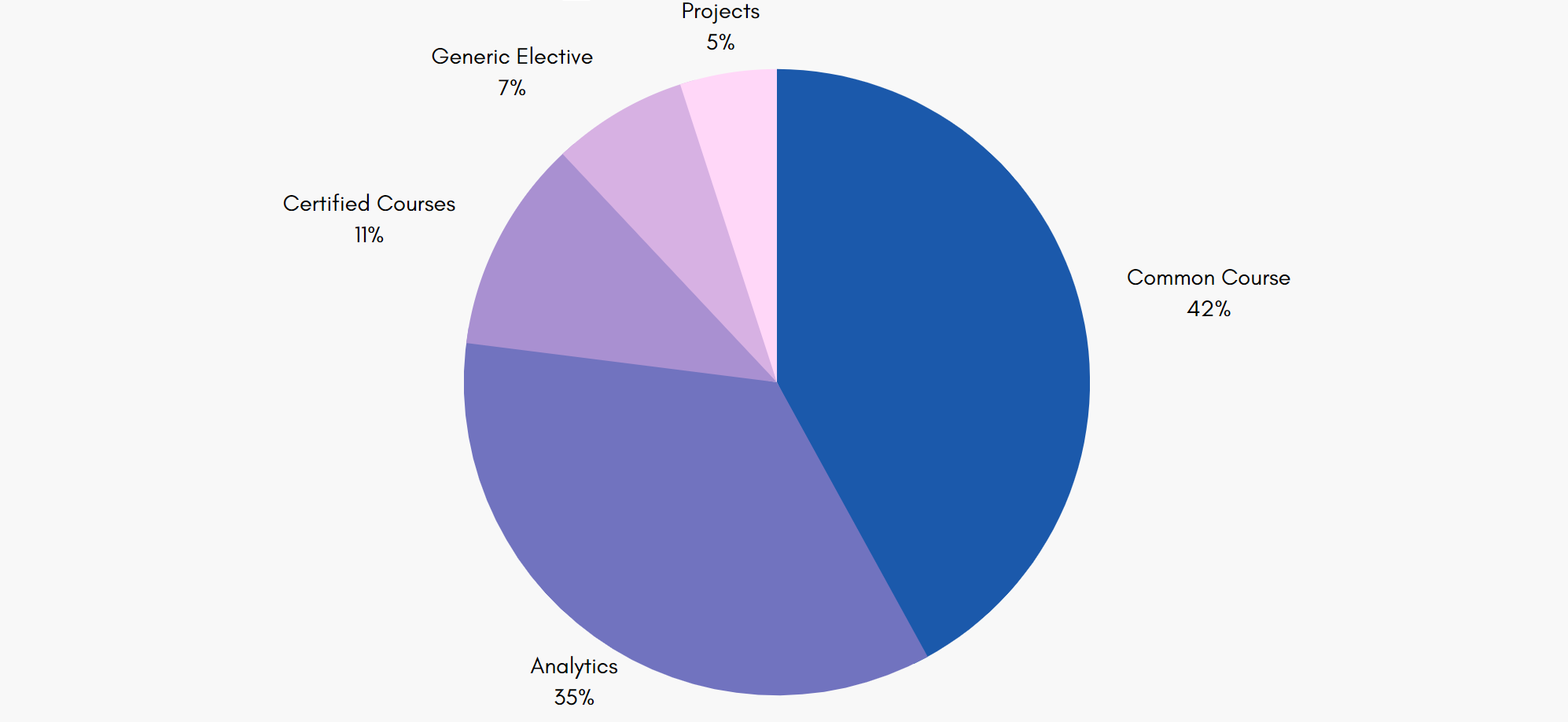Candidates will be intimated about the selection status through application status page on the University website www.lavasa.christuniversity.in
Note: Candidates must note that if selected, admission is provisional and subject to University rules.
Details on how to process admission will be available on Offer of Admission through ‘Application Status’ link on the University website.
Candidates are required to choose the preferred date and time from available options to facilitate smooth admission process. Admission must be processed at the Office of Admissions, Central Block, CHRIST (Deemed to be University), Pune Lavasa – 412112.
As per UGC guidelines, fee payment has to be made through online mode. Payment options and details will be provided to selected candidates through ‘Offer of Admission’ on ‘Application status’ on the University website. Fees for first year including Admission Registration fee must be paid in full as part of the admission process.
Admission will not be processed without the presence of the candidate and the mandatory ORIGINAL DOCUMENTS and one set of photocopies mentioned below;
- Class 10 Marks Statement (Mandatory).
- Class 12 Marks Statement (Internet printout) (Mandatory).
- Transfer Certificate (TC) from the last qualified institution (Mandatory).
- Migration Certificate of Class XII (applicable for all candidates except Maharashtra State Board) (Mandatory).
- One Stamp size and One passport size photograph formal dress with white background (Mandatory).
- Two Copies of the Online Payment Receipt (Mandatory).
- Copy of valid ID proof (Aadhar Card / Aadhar Enrolment Receipt).
- Candidates falling under any of these categories (NRI / PIO / OCI / SAARC / AFRICA / ASEAN / OTHER FOREIGN NATIONALS) have to submit:
- Copy of Passport and Visa Details (Mandatory).
- PIO / OCI have to produce the copy of PIO / OCI card whichever is applicable (Mandatory).
- Medical Fitness Certificate (MFC) from any recognized medical practitioner certified by the Medical Council of India and
- Resident Permit (RP) (If available while applying)
All mandatory documents must be submitted for verification during the admission process. An undertaking for pending original documents unavailable currently [applicable only for candidates writing / passing their exam in March – June 2025], must be submitted to the Office of Admissions. These documents must be submitted on or before July 15, 2025. Failure to submit the pending documents will be treated as unsuccessful in the qualifying examination or considered “Not Eligible” and admission will be terminated from CHRIST (Deemed to be University) without any claim.
All admitted students must open an account at South Indian Bank, CHRIST (Deemed to be University) Branch as part of the admission process and must carry relevant ID proof (Aadhar Card and Pan Card). The University ID card is a smart card, which is both an ID cum ATM card with a chip containing the student personal details. All transactions within the University campus after commencement of classes, including fee payment will be processed only through this card. It is also an access card for Library and other restricted places.
Selected candidates who fall under International student category (ISC) should register with the Foreigner Regional Registration Officer (FRRO / FRO) of the Local Police in Pune, India within 14 working days from the date of admission or arriving in Pune.
The date of commencement of the academic Year 2025 - 2026 will be intimated during the admission process.
Please note:
- The University does not collect any type of capitation/donation other than the fees mentioned on the website.
- CHRIST (Deemed to be University) does not authorize any Third Party / Agents / Person to apply/offer admission on its behalf. CHRIST (Deemed to be University) will not be responsible for applicants being misguided by such individuals / SMS / Email.
- All those admitted to the programme will have to purchase a laptop at their own cost if required by the department.
- Admitted students who wish to avail bank loan will be provided with a recommendation letter on request by presenting the original fee paid receipt to the Office of Admissions.
- The decision of the admission committee is final and binding.








.png)
.png)
%20Data%20Science%20Industry%20Connect.png)
%20Data%20Science%20Industry%20Connect%202.png)

.png)
.png)
.png)

 1800-123-2009
1800-123-2009